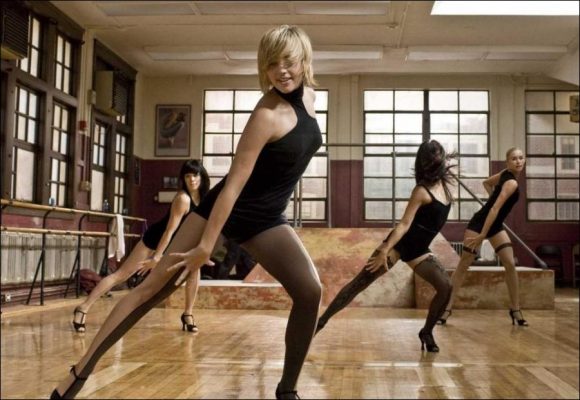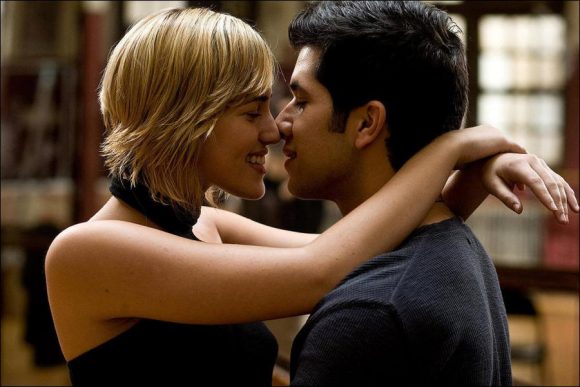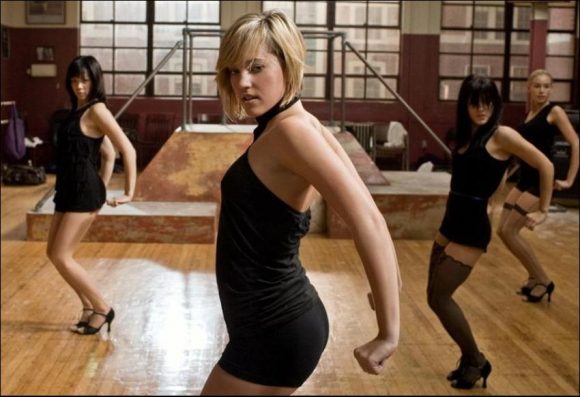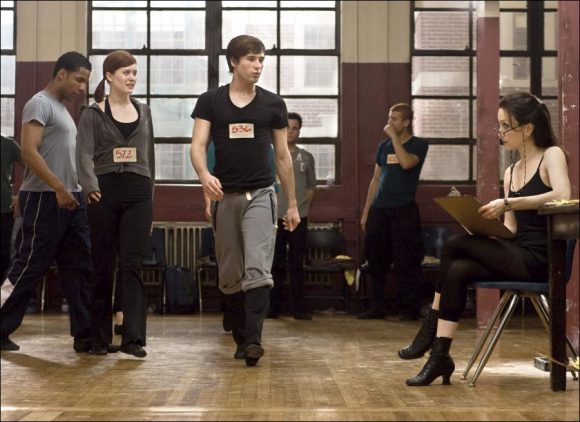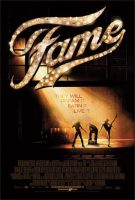This irrelevant re-make of Fame doesn’t light up the sky like a flame. Instead, it crashes to earth with a dull thud.
The awful truth about no one from the Fame movie or TV show going on to become famous may not yet have dawned on the cast of this new and bizarrely pointless remake. Because there they all are, a whole new generation of volatile, yearning unknowns, now with mobile phones instead of leg-warmers, but basically it’s the same deal. And they are all eagerly signing on for the curse of Fame, like a happy band of cult hippies following Jim Jones into the jungle.
What is going on? The publicity material for this film suggests that Fame, a fictional account of wannabes’ hopes and dreams throughout a four-year course at New York’s High School of Performing Arts, is a back-to-basics call to something higher than our modern infatuation with “celebrity”. With its stern demand for training and technique, Fame is supposedly about becoming well-known based on real talent and achievement – not just crass reality TV and having your own Facebook page. But fame was always the point.
All that dancing in the streets and leotard-wearing was a means to an end, and so going on Big Brother and blogging and tweeting was simply the next evolutionary step. And the original 1980 movie by Alan Parker, with its spectacle of vulnerable youngsters being patronised or yelled at by the supercilious meanies and bores on the teaching staff, laid the groundwork for American Idol and Strictly Come Dancing. The difference is that all these genres have more humour and zip than the ponderous and self-congratulatory Fame.
This remake sticks pretty closely to the structure of the first film: four acts corresponding to four academic years – freshman, sophomore, junior, senior. There is the obligatory opening montage of young students all in a whirl of energy with their various callings: ballet, theatre, music – though all those classical types scraping away at their violins are there to add cultural ballast.
They are of zero interest once we get stuck into the main action, which is about sexy dancers, actors and pop musicians. The new Fame revives the mass bop scene in which students spontaneously start improvising, dancing and jamming in the middle of the day through sheer life-affirming vitality and, just as before, this supremely embarrassing sequence is as unwatchable as the most explicitly violent horror film.
At some stage, of course, these young idealists must encounter brutal showbiz reality outside school. So the question that must be in all our minds is – how are they going to do the Irene Cara Taking Her Top Off scene?
In the 1980 original, Cara, playing Coco, a lovely yet naive young student, is tricked into showing up for what she thinks is a legitimate audition. This turns out to be some slimeball with a video camera in his scuzzy apartment, and Coco is bullied into undressing and starts crying while reading out the porny script she’s been given. It was a genuinely nasty, sleazy moment – perhaps nastier than the director ever quite intended – reminding us that Fame was a product of the gritty 1970s, and that Alan Parker had just made the gamey prison drama Midnight Express, often double-billed in those days with Taxi Driver.
This scene is now displaced into two different versions. Jenny (Kay Panabaker) is an innocent, uptight acting student who goes into a star’s trailer for a “reading” in front of the video camera: he tries it on, but is rejected without difficulty or loss of clothing. Neil (Paul Iacono) is a would-be film-maker, rooked into handing over his dad’s savings to a bogus producer who then skips town. But aside from admitting ruefully that he will be paying his dad off until he is 30, Neil suffers no real emotional pain. The Irene Cara Topless scene has been decaffeinated and cleaned up for the High School Musical generation.
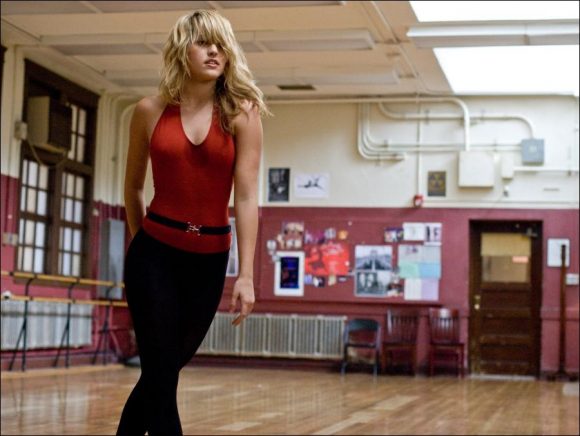
The next question about the new Fame is: how gay is it? The Wayans brothers recent spoof, Dance Flick, offered a crudely knowing send-up of the Fame ensemble dance scene with the word “Gay!” replacing “Fame!” in the lyrics. All these boys away from the family nest, so tremulous, so uncertain, so thrilled to the very core of their being by showtunes: are they just not ‘fessing up to something? Well, this new Fame is reticent on the subject. Straight relationships are the only ones permitted; gay sexuality is not mentioned, and – a little insultingly – the one character who really does look properly gay is a quasi-suicidal loser who flunks and has to go back to Iowa.
But is Fame “gay” after all? Isn’t it, in fact, straight? Tragic straight, thin-skinned straight, a world of straights in every sense, earnestly and conventionally striving to achieve bohemian euphoria via some classroom qualification? Infuriatingly, the teachers are a condescending bunch who seem always to be giving the wrong advice.
A rage-filled young African-American guy is patronisingly told to calm down because there is no anger in the theatre, just actors playing angry roles. Jenny’s subdued rendition of Someone To Watch Over Me seemed to me more interesting in its melancholy, unassuming simplicity than the show-offy Vegas-lounge-vibrato version her teacher wanted to hear. On this basis, obscurity beckons for one and all.
Fame (2009)
Directed by: Kevin Tancharoen
Starring: Debbie Allen, Charles S. Dutton, Kelsey Grammer, Kherington Payne, Megan Mullally, Bebe Neuwirth, Thomas Dekker, Kristy Flores, Paul Iacono, Anna Maria Perez de Tagle
Screenplay by: Allison Burnett, Aline Brosh McKenna
Production Design by: Paul Eads
Cinematography by: Scott Kevan
Film Editing by: Myron I. Kerstein
Costume Design by: Dayna Pink
Art Direction by: Scott Meehan
Music by: Mark Isham
MPAA Rating: PG for thematic material including teen drinking, a sexual situation and language.
Distributed by: Paramount Vantage
Release Date: September 25, 2009
Views: 343
